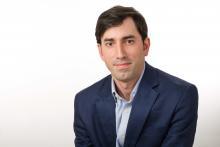Revolutions for Whom?
PHILADELPHIA – “No one will be worse off than before, but it will be much better for many,” German Chancellor Helmut Kohl assured East Germans after the fall of the Berlin Wall on November 9, 1989. His words helped fuel rapid political and economic changes throughout post-communist Europe. Thirty years later, it’s worth asking how well Kohl and other Western leaders kept this promise.
Travel to Prague, Kyiv, or Bucharest today and you will find glittering shopping malls filled with imported consumer goods: perfumes from France, fashion from Italy, and wristwatches from Switzerland. At the local Cineplex, urbane young citizens queue for the latest Marvel blockbuster movie. They stare at sleek iPhones, perhaps planning their next holiday to Paris, Goa, or Buenos Aires. The city center hums with cafés and bars catering to foreigners and local elites who buy gourmet groceries at massive hypermarkets. Compared to the scarcity and insularity of the communist past, Central and Eastern Europe today is brimming with new opportunities.
In these same cities, however, pensioners and the poor struggle to afford the most basic amenities. Older citizens choose between heat, medicine, and food. In rural areas, some families have returned to subsistence agriculture. Young people flee in droves, seeking better opportunities abroad. Economic suffering and political nihilism fuel social distrust as nostalgia for the security and stability of the authoritarian past grows. Populist leaders seize on public discontent to dismantle democratic institutions and steer the economy to the benefit of their friends, family members, and supporters.
These two worlds exist side by side, both born after the revolutions of 1989. While the last 30 years wrought positive change for a significant minority, the majority of former socialist citizens in Central and Eastern Europe and Central Asia suffered an economic calamity that left deep scars on the collective psyche of the post-communist world.
When these countries liberalized their economies in the 1990s, economists and policymakers knew there would be recessions, but they could not guess the devastating depth and length of the downturns. Using data from the United States Department of Agriculture, the World Bank, and the European Bank for Reconstruction and Development (EBRD), we calculated the size of the transitional recessions, and compared their depth in Europe and Eurasia (starting in 1989) to the US Great Depression (starting in 1929).
We divided the post-communist countries into three groups in terms of the average length and depth of their transitional economic slumps. In the most successful countries, the transitional recession was comparable to the US Great Depression (a 30% drop in GDP per capita). For the median countries, the transition recession devastated the economy, exceeding the magnitude of the Great Depression in depth (a 40% decline in GDP per capita) and length (17 years versus ten). The hardest-hit countries never recovered: 30 years later, GDP per capita remains below its level in the late socialist period.
Moldova best represents the countries where economic transition has failed most people. After the breakup of the Soviet Union, Moldova’s GDP per capita plummeted and bottomed out in 1999, when it was 66% below its 1989 level. In 2007, GDP per capita was still 42% lower than in 1989. Although Moldova grew substantially after 2010, it remained 12% below its 1989 level in 2016.
Moldova is not alone. GDP per capita in five other post-communist countries – Georgia, Kosovo, Serbia, Tajikistan, and Ukraine – remained below 1989 levels in 2016. For these countries, transition brought unprecedented levels of economic pain and little gain, except for an elite few. Post-communist economic catastrophes precipitated millions of excess deaths, mass emigration, and a variety of social ills mostly unknown under communism: poverty, organized crime, and growing inequality. And in most post-communist countries, aggregate GDP figures mask massive growth in income polarization since 1989.
These countries include the world’s fastest-shrinking, owing to demographic death spirals fueled by higher mortality, lower fertility, and increased emigration. A 2016 EBRD study noted that children born around the time of the onset of transition in their countries were about one centimeter shorter, on average, than their peers in the cohorts immediately preceding or following them. That is a difference found in war zones and other environments where babies suffer both micronutrient deficiencies and psychosocial stress.
As liberal elites both East and West commemorate the peaceful end of the Cold War and celebrate the real successes of the last three decades, it is important to remember that not everyone has benefited from the advent of capitalism. Public opinion surveys reveal tanking levels of social trust, falling confidence in public institutions, and growing anger at income inequality.
This has created fertile ground for populist parties and leaders, even in some of the most successful countries, like Hungary and Poland. The deep misery caused by the transitional recessions remains a fresh memory for many citizens and will influence political and economic choices in the region for decades to come, just as the experience of the Great Depression still animates public policy in the US.
Thirty years after the fall of the Berlin Wall, reality has inverted Kohl’s famous promise: many are worse off than before, but it is much better for a few. Until prosperity is broadened to the many, the revolutions that began in 1989 will remain unfinished.
Kristen R. Ghodsee is Professor of Russian and East European Studies at the University of Pennsylvania. Mitchell A. Orenstein, Professor of Russian and East European Studies and Political Science at the University of Pennsylvania, is a senior fellow at the Foreign Policy Research Institute and author of The Lands in Between: Russia vs. the West and the New Politics of Hybrid War.
Copyright: Project Syndicate, 2019.
This article is brought to you by Project Syndicate that is a not for profit organization.
Project Syndicate brings original, engaging, and thought-provoking commentaries by esteemed leaders and thinkers from around the world to readers everywhere. By offering incisive perspectives on our changing world from those who are shaping its economics, politics, science, and culture, Project Syndicate has created an unrivalled venue for informed public debate. Please see: www.project-syndicate.org.
Should you want to support Project Syndicate you can do it by using the PayPal icon below. Your donation is paid to Project Syndicate in full after PayPal has deducted its transaction fee. Facts & Arts neither receives information about your donation nor a commission.
















